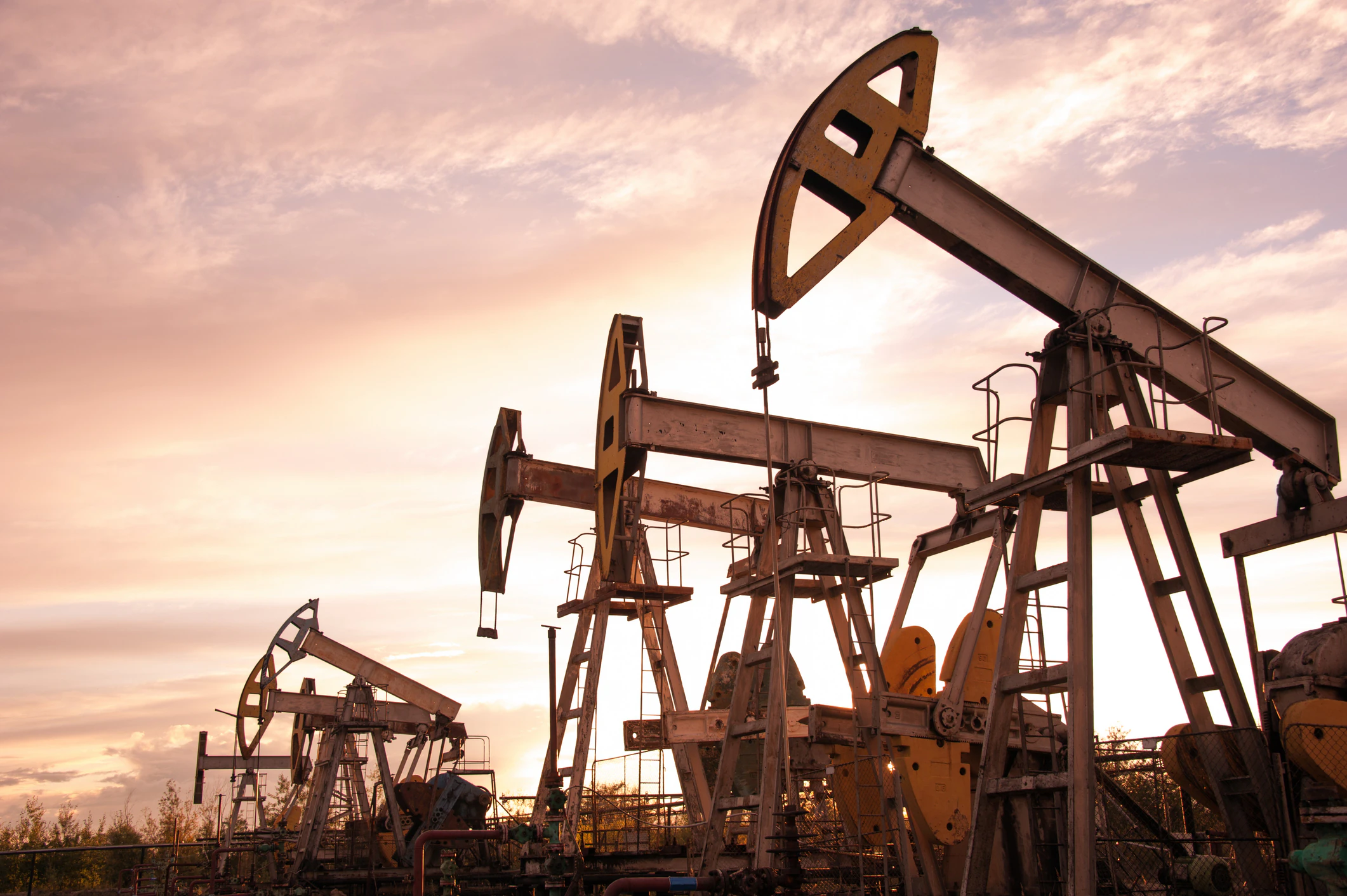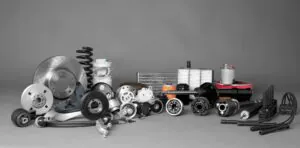Turbine pumps play a pivotal role in the agricultural industry, particularly for irrigation and other critical applications. These versatile pumps are widely used for liquid transfer, raw water intake, cooling water circulation, water storage pumping, pressure boosting, and flood control. With the agricultural sector’s increasing reliance on efficient water management systems, the demand for turbine pumps has surged globally, driving substantial growth for manufacturers in this space. Additionally, their expanding use in electricity generation and the growing emphasis on renewable energy have further fueled this demand. In this blog, we’ll explore the top turbine pump manufacturers driving innovation and meeting the rising market needs, offering insights into their unique strengths and market strategies.
What are Turbine Pumps?
Turbine pumps, a type of centrifugal pump, are engineered with key components such as an impeller, pump shaft, and motor to deliver high performance across various industries. By harnessing the fluid’s momentum and velocity, these pumps efficiently generate pressure. Constructed using durable materials like plastics, cast iron, steel, and stainless-steel alloys, turbine pumps are also known by names like vortex pumps, periphery pumps, or regenerative pumps. Their versatility makes them indispensable for applications such as irrigation water pumping, deep-well pumping, and wastewater treatment. With their robust design and wide-ranging uses, turbine pumps continue to drive innovation and efficiency in essential operations.
Why These Turbine Pump Manufacturers Stand Out
Top Turbine Pump Manufacturers
- Gorman-Rupp: Pioneer in Pumping Solutions Since 1933
- Pentair: Revolutionizing Water and Energy Efficiency
- Sulzer: Swiss Excellence in Engineering Since 1775
- Flowserve: Global Leader in Industrial Machinery
- Xylem: Advancing Water Technology Worldwide
- Grundfos: Pioneering Sustainable Water Solutions Globally
- KSB Group: German Engineering Excellence Since 1871
Gorman-Rupp: Pioneer in Pumping Solutions Since 1933
Headquartered in Mansfield, Ohio, Gorman-Rupp stands as a global leader in turbine pump manufacturing. The company caters to diverse markets, including water, municipal, wastewater, industrial, petroleum, and fire protection. With an extensive product line ranging from standard centrifugal pumps to priming-assisted and trash pumps, Gorman-Rupp emphasizes reliability and innovation. Their solutions are widely adopted for efficient water management, solid waste handling, and industrial applications, making them a trusted name in the industry.
Pentair: Revolutionizing Water and Energy Efficiency
Founded in 1966 and headquartered in Dublin, Ireland, with a significant U.S. presence in Minneapolis, Minnesota, Pentair is a multinational powerhouse. Specializing in high-performance pool and spa equipment, Pentair is also known for its energy-efficient turbine pumps. Operating in over 30 countries, the company prioritizes sustainability by offering cutting-edge water treatment and pump solutions for residential, commercial, and industrial applications.
Sulzer: Swiss Excellence in Engineering Since 1775
Sulzer Ltd., based in Winterthur, Switzerland, boasts a legacy dating back to 1775. Known for its expertise in flow control and applicators, Sulzer delivers state-of-the-art turbine pumps tailored for separation, mixing, and rotating equipment solutions. Listed on the Swiss Stock Exchange, the company serves global markets, including oil and gas, power generation, and water infrastructure, ensuring optimal performance and reliability.
Flowserve: Global Leader in Industrial Machinery
Founded in 1997 and headquartered in Irving, Texas, Flowserve Corporation is among the world’s largest suppliers of turbine pumps and industrial machinery. With a robust portfolio that includes valves, automation, and mechanical seals, Flowserve serves industries such as oil, power, and chemicals. Their global footprint spans over 55 countries, supported by more than 18,000 employees. Flowserve’s commitment to aftermarket services and OEM partnerships further cements its position as an industry leader.
Xylem: Advancing Water Technology Worldwide
Headquartered in Rye Brook, New York, Xylem Inc. is a trailblazer in water technology and turbine pump manufacturing. With operations in over 150 countries, Xylem offers advanced solutions for water treatment, transportation, and testing. Its turbine pumps are widely used across residential, agricultural, and industrial sectors, emphasizing energy efficiency and sustainability. Xylem’s innovative approach ensures it remains a key player in addressing global water challenges.
Grundfos: Pioneering Sustainable Water Solutions Globally
Based in Bjerringbro, Denmark, Grundfos is a global leader in advanced pump solutions, including turbine pumps. Founded in 1945, the company focuses on sustainability, providing energy-efficient products for water supply, wastewater treatment, and agricultural irrigation. With a strong presence in over 100 countries, Grundfos combines innovation with environmental responsibility, ensuring reliable and eco-friendly solutions for a wide range of applications. Their commitment to technology-driven progress makes them a standout in the turbine pump market.
KSB Group: German Engineering Excellence Since 1871
Headquartered in Frankenthal, Germany, KSB Group is renowned for its precision engineering in pumps, valves, and related systems. Founded in 1871, KSB offers a broad range of turbine pumps designed for water management, irrigation, and energy applications. With subsidiaries and service centers in over 100 countries, the company emphasizes customer-centric solutions, innovation, and sustainability. KSB’s robust research and development initiatives ensure cutting-edge products that meet evolving global demands.
Unlock actionable insights and accelerate your business growth with SpendEdge’s tailored industrial and manufacturing solutions. To discover how we can help you streamline operations, reduce costs, and enhance your competitive edge…
Challenges Faced by the Global Industrial Pump Market
Environmental Regulations
Strict environmental regulations demand energy-efficient and low-emission pumps. Manufacturers must innovate to meet these standards, requiring investments in R&D to ensure compliance while maintaining competitive pricing.
Technological Advancements
Advanced technologies like IoT and automation bring opportunities but require significant R&D investment. Manufacturers must adopt smart solutions while managing costs to stay competitive.
Energy Costs
High energy costs significantly impact pump operations. Fluctuating energy prices push manufacturers to develop energy-efficient pumps to reduce operational expenses and attract cost-conscious buyers.
Supply Chain Disruptions
Raw material shortages and rising logistics costs disrupt production. Manufacturers must build resilient supply chains by diversifying suppliers and adopting local sourcing strategies.
Skilled Workforce Shortage
Complex pump technologies require skilled technicians, but talent shortages hinder progress. Investing in workforce training and educational collaborations can bridge this gap and ensure efficiency.
Opportunities in the Global Industrial Pump Market
Energy efficiency and environmental concerns
As industries and governments focus on sustainability, there’s a demand for more energy-efficient pump solutions that can reduce operational costs and minimize environmental impact. Pump manufacturers can capitalize on this demand by developing pumps that meet or exceed energy efficiency standards.
Rising demand for water and wastewater management
With increasing concerns about water scarcity and the need for efficient water management, there’s a growing demand for pumps used in water treatment, distribution, and wastewater management systems. Pumps that are energy-efficient and capable of handling different types of fluids are in high demand.
Integration of Smart Technologies
The rise of Industry 4.0 has created a demand for pumps equipped with smart features like IoT sensors, remote monitoring, and predictive maintenance capabilities. By integrating these technologies, manufacturers can offer advanced solutions that enhance operational efficiency, reduce downtime, and attract tech-savvy customers.
Expansion into Renewable Energy Applications
As renewable energy adoption grows, there is increasing demand for pumps used in solar thermal systems, wind farm cooling, and geothermal applications. Developing pumps tailored to these sustainable energy projects allows manufacturers to tap into a fast-growing and eco-conscious market segment.
Uses of Turbine Pumps
- Pumping Systems in Energy Generation: Utilized within pumped-storage and thermal power facilities, these pumps manage high-pressure water conveyance for both water pumping and boiler feedwater supply purposes.
- Urban and Industrial Water Conveyance Networks: Within urban and industrial settings, turbine pumps play a vital role in efficiently transporting water to reservoirs and distribution systems, ensuring reliable supply.
- Emergency Fire Suppression Mechanisms: Turbine pumps are integral components in firefighting systems, efficiently delivering water to remote or elevated areas with their compact design and capability to handle high pressures.
- Seawater Purification Infrastructure: Indispensable for seawater desalination plants, these pumps facilitate the high-pressure requirements essential for seawater processing through membrane filtration and evaporation processes.
Ready to take your industrial and manufacturing operations to the next level? Contact us today to discuss how SpendEdge’s expert solutions can drive efficiency, reduce costs, and unlock new growth opportunities for your business…
The Selection of Turbine Pump: Crucial Factors to Consider
| Factor | Why It Matters | Key Considerations |
|---|---|---|
| Application Type | Different applications require pumps with varying flow rates, materials, and designs. | Specify the fluid type (water, chemicals, etc.), desired pressure, and operational requirements for irrigation, wastewater, or industrial uses. |
| Material of Construction | Materials determine the pump’s durability, resistance to wear, and compatibility with specific fluids. | Choose from cast iron, stainless steel, or alloys based on the fluid’s corrosiveness, temperature, and abrasion levels. |
| Energy Efficiency | Reducing operational costs and environmental impact is critical in today’s market. | Opt for energy-efficient models that meet regulatory standards and lower long-term expenses. |
| Maintenance Needs | Easy-to-maintain pumps minimize downtime and operational disruptions. | Evaluate the design for accessibility, spare part availability, and required maintenance intervals. |
| Pump Size and Capacity | Choosing the correct size ensures the pump meets performance demands without overloading or inefficiency. | Assess flow rate, head requirements, and system compatibility to select a pump with the right capacity. |
| Budget and Lifecycle Cost | Initial costs, along with operational and maintenance expenses, affect the overall ROI. | Balance upfront investment with long-term savings, prioritizing durability and energy savings over lower initial costs. |
| Technology Integration | Advanced features improve monitoring, efficiency, and predictive maintenance. | Look for pumps equipped with IoT connectivity, smart sensors, and automation capabilities for enhanced performance. |
In conclusion, the global turbine pump market is experiencing significant growth driven by the demand for energy-efficient solutions and the increasing emphasis on water and wastewater management. Leading manufacturers like Gorman-Rupp, Pentair, and Sulzer are at the forefront, delivering innovative, high-performance pumps for diverse industries. As sustainability and smart technology integration continue to shape the market, companies must focus on energy efficiency, durability, and advanced features to stay competitive. By aligning with these trends and addressing key market challenges, turbine pump manufacturers can unlock new opportunities and contribute to critical infrastructure, supporting industries from agriculture to energy and beyond.





